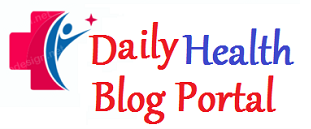Like any other field, the system of pharmacy management is always changing. Needless to say, health is the primary constituent of quality life, so it is safe to say that changes in the pharmaceutical industry are always occurring. They are key to ensuring medical facilities, doctors, and patients are well provided with medicines and other equipment that is necessary for the right provision of care. Emerging trends in pharmacy management are key to keeping ahead of the changing times and patient needs.
What is pharmacy management?
Pharmacy management in healthcare is one of the biggest elements in medical accessibility and healthcare to its best capacity. To maintain optimal provision of care and access to medication, local pharmacies must employ a robust pharmacy management system. Without such management systems to oversee the budgets, medicine inventory and providing care for patients would have numerous problems, especially during global emergencies and shortages.
Managing and administering the pharmacy, its finances and activities within healthcare facilities and institutions require rigorous training and efficacy. Innovations and effective pharmacy management in healthcare practices would be defeated in their whole purpose without such facilities being accessible and affordable to people. With correct financial allocation, all pharmacies can have a good inventory of medical supplies at the correct and non-inflated prices. That will increase the accessibility of medicines and the provision of care.
What are the emerging trends in pharmacy management?
There are a few key areas in which pharmacy management has been heading recently.
PACS integration
PACS stands for picture archiving and communication system and this is a technology for medical imaging used primarily in the field of healthcare organizations to help securely store as well as digitally transmit electronic images and any relevant clinical reports.
Teleradiology
Telemedicine refers to the use of phone calls, where the patient seeks an appointment with the doctor for remote advice about non-emergency and follow-up medical problems which do not require the doctor to physically see the patient. This absolutely does not replace face-to-face consultation which are indispensable but instead complement them.
Digital therapeutics
These are software-based or alternatively, digital products that are aimed to help treat, mitigate, manage, or prevent a medical condition. They are often accessed remotely, though your phone is similar to telemedicine.
Conclusion
That brings us closer to some of the ways in which pharmacy management has been shifting in the recent parlance. Accelerating pharmaceutical innovation and research in the field of healthcare is essential for combating difficult illnesses and finding more effective solutions for treating them. That’s why healthcare facilities and pharmacies, whether local or involved with large hospital chains, should invest in the right financial management system to keep up the quality of care.

